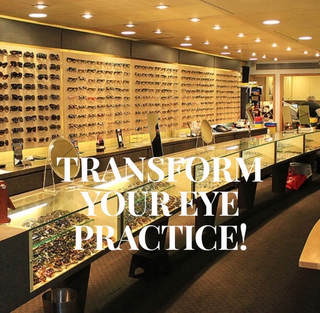 Do you have someone who is able to train each position in your office? Probably not. It is hard to have that many quality staff. Many offices only have one person staffing each position, and even if they have more than one, that doesn’t mean that each person could train someone. That reality breeds two problems: One, if a staff person leaves abruptly, the office struggles or even has tasks that go undone. Insurance may not be filed for weeks, for example. Two, employers keep bad employees around because they fear they can’t replace them if they let them go. Has this happened to you or are you in danger of being in this situation? Are you holding on to staff that you should let go or are you paying someone more money that they are worth? Here are a few ideas to get yourself out of that situation. Borrow a Staff Person: Most employers have a friend in the profession. Find a friend who has a top-notch employee, and partner with them to have their employee come in for an afternoon of training. Cross Train: Take an afternoon per month and have each of your staff train the rest. This ensures that every person can do every job. Bring in a Consultant: Many healthcare professionals like myself off in person and virtual training. My Front Desk Academy can be tailored made to whatever need you may have. No matter what, don’t leave yourself stranded or be held hostage by outgoing to poorly performing staff. Your practice and patients deserve better. Gordon Duncan is the CEO/Consultant of ProSight Success and has trained employees for nearly 20 years. ProSight Success has several tools to help you with all of this. Our international bestseller, Practice Progress, goes deep into the philosophies above. You can find the paperback at Amazon. However, your best value is the full 7 Step, 7 Book ProSight Success System. We offer it in 3 formats: Digital ProSight Success System Paperback ProSight Success System And our best value: the ProSight Success Workbook that includes a digital copy and a free hour of consulting. Of course, Gordon Duncan, our CEO, is also available for private consulting. Email him at [email protected]. No matter what, don’t surrender your ground in the eye care industry. You have so much to offer.
0 Comments
 Atmosphere is the eye care provider’s competitive edge. Think about it. The local eye care provider cannot price compete with the Wal-Mart’s, Costco’s, Warby-Parker’s, and the host of other frame providers. For most practices, selling $39 frames is a losing proposition. You just can’t make enough money. So, how do you compete? One word: atmosphere. Online frame sellers aren’t worried about atmosphere. Their edge is price and convenience. Since the local eye doc won’t win those battles, they have to emphasize atmosphere, and people care about atmosphere. Think about it this way. You can make coffee at home way more cheaply than the cost of a cup of Starbucks. You can even make Starbucks coffee at home. Yet, millions of people flock to Starbucks every day. Why? Atmosphere. People love the smell, the attention, and their local barista. Think about alcohol. You can buy beer, wine, and whiskey for the fraction of the cost of buying alcohol in public. That reality does not stop millions of people from ordering drinks at restaurants and bars every day. The reason is atmosphere. So, to compete, eye care providers have to promote and provide a welcoming and enjoyable atmosphere. Here are a few ways to get started. Treat your frame room like a show room. Make it a fashion experience. Your interior decoration should model a high-end retailer. There is a reason people love to go clothes and makeup shopping. People love the feeling and atmosphere. Decorate your frame area with the same approach. Pamper your patients. You are asking them to spend $350 plus on frames. For that, they should be pampered. Do more than just provide a k-cup or two. Pamper them like they are the only people in the world who are purchasing frames. Wait on them hand and foot. Spoil them. Have your frame sellers wear retail dress. Your frame sellers should demonstrate their fashion acumen. There is a disconnect if your sellers look disheveled or are in scrubs while they are giving fashion advice. Eyewear is a fashion position, and your seller’s appearance will lead the way in that approach. Friends, online forums have eye doctors worrying that the industry may be 75% gone in 5 years or less. The battle to keep that from happening is atmosphere. Make yourself more than a prescription and cheap frame provider. Be a warm, fashion-filled atmosphere for fashion and eye care and distinguish from everyone else. ProSight Success has several tools to help you with all of this. Our international bestseller, Practice Progress, goes deep into the philosophies above. You can find the paperback at Amazon. However, your best value is the full 7 Step, 7 Book ProSight Success System. We offer it in 3 formats: Digital ProSight Success System Paperback ProSight Success System And our best value: the ProSight Success Workbook that includes a digital copy and a free hour of consulting. Of course, Gordon Duncan, our CEO, is also available for private consulting. Email him at [email protected]. No matter what, don’t surrender your ground in the eye care industry. You have so much to offer. Gordon Duncan is the CEO/Consultant of ProSight Success and has trained employees for nearly 20 years.  The nation watched in horror as a pedestrian bridge at Florida International University collapsed on the highway. Presently, the death toll stands at five while many more were injured. It appears that the 860-tonne bridge fell within hours of being set in place. One news center described it this way: The purpose of the bridge was to connect the university with the City of Sweetwater An 18-year-old female student had been killed trying to cross the busy road last August, according to local media reports. The $US14.2 million ($18.2 million) bridge was built to provide a safer path for pedestrians. It measured 53 metres and was meant to withstand a Category 5 hurricane and last more than a century.[i] As the details became clear, it was discovered that an engineer expressed concern about the bridge’s stability. The engineer called the Florida Department of Transportation, but when there was no answer, he left a voicemail stating his hesitations. The voicemail was never checked. Two days later, the bridge collapsed.[ii] There is a lesson to learn here for the medical industry. In the era of cell phones, the lesson can be stated in this way, “Does your practice have a landline voicemail, and whose responsibility is it to check it?” Many patients still trust landlines and leave messages. Sadly, I’ve seen medical practices with as many as 27 unread voicemails. Practices can’t approach voicemails in this way. They aren’t a distraction. They may actually be pertinent, necessary, and life-threatening. Of course, most voicemails these days state that if the purpose of the call is life-threatening, please call 911, but not everyone follows instructions. Simply, your medical practice needs a landline voicemail plan, and the good news is it is simple to implement one: One: Establish whose responsibility it is to check for voicemails on all lines. Two: Establish who responsibility it is if that person is out of the office. Three: Establish a protocol for how to respond to those messages. Four: Establish the expectation of response to your employees so that no patient is ever left with no response. The tragedy in Florida is horrific, and one key takeaway for all of us is to not let our responsibilities to our patients be hindered by such a thing as a landline voicemail. Gordon Duncan is the CEO/Consultant of ProSight Success and has trained employees for nearly 20 years. ProSight offers a host of resources for the optometric and small business field. You can find front desk training at our Front Desk Academy. Additional resources can be found below: Digital ProSight Success System Paperback ProSight Success System And our best value: the ProSight Success Workbook that includes a digital copy and a free hour of consulting. [i] http://www.abc.net.au/news/2018-03-16/what-we-know-about-the-installation-of-the-florida-bridge/9554656 [ii] http://www.abc.net.au/news/2018-03-17/florida-bridge-collapse-voicemail-warning-days-before-accident/9559172  Recently, an eye doctor brought me in to help with hiring. First, I source gathered about 100 resumes. After weeding them out, I called 15 of them. I then set up 10 interviews. The goal was that out of those 10, I would recommend 2 for the doctor to interview, and out of that pool, he would have his candidate. In the interviews, I was reminded of the challenge of learning about potential employees while staying within legal bounds. For example, you can’t ask questions about their personal lives, how many children they have, if they are married, what kind of transportation that have, and on and on. So, the big question is, “How can you legally learn the most about your potential employees?” I have two sure-fire questions. The first is, “If you had a Saturday to yourself, to do whatever you wanted to do, what would you do?” This is a super question because people typically have to stop and think. They will tell you what they normally do on a Saturday, they will tell you why they can’t do what they want to do, and they will tell you a lot about their choices of recreation. Additionally, you are allowed to ask follow up questions to anything that they mention on their own, or you can at least say something like, “Oh, you mentioned your children, can I ask you about them?” You learn a lot. The second question is also a personal favorite. I ask, “Are you a big reader?” You learn so much about employees from this question. First of all, you learn if they like to read. My opinion is that readers make the best employees because they engage their brain and want to learn. Also, when a potential employee says they do like to read, then ask what the last book was they read or ask them what kinds of things they like to read. Both answers tell you a lot about their personalities. Take these two questions into your next interview and learn a ton about a potential hire. It might just make the difference between hiring someone that lasts 10 days versus someone who lasts10 years. If you would like further help in hiring, ProSight Success has two resources for you. The first is our book “Resourcing Human Resources” which goes in depth to the hiring process and how you can improve it. You can find it here. Also, you can bring me in for a similar process as what you read at the beginning of this article. If this is something you are interested in, please email me at [email protected] or call me at 919-412-1816. Gordon Duncan is the CEO/Consultant of ProSight Success. He has worked in the eye care industry for nearly 20 years. He has consulted in the medical field, manufacturing, accounting, and many other disciplines. You can contact him at [email protected] ProSight offers a host of resources for the optometric and small business field. You can find front desk training at our Front Desk Academy. Additional resources can be found below: Digital ProSight Success System Paperback ProSight Success System And our best value: the ProSight Success Workbook that includes a digital copy and a free hour of consulting.  We’ve launched a podcast! Thank you everyone for your faithful reading of our ProSight Success emails and curriculum. We continue to work hard to provide you with the best in eye care and business-related writings and teachings. But have you noticed that our writings have expanded in the last year? We have written about physical health and even relational health at times. Towards that end, Gordon Duncan, ProSight Success’ CEO, is launching a Podcast entitled, “This is Gonna Hurt, a Podcast of J. Gordon Duncan”. Why such a title? Because real change always comes through pain and progress. No pain, no progress. In each episode, the podcast will focus on one of four areas: finances, physical health, family, and faith. That means we will definitely be talking about the eye care industry, but the podcast will also talk about lots of other topics as well. Right now, you can find the podcast on iTunes and Anchor with 3 other platforms launching soon. Check it out to find out more about what to expect. Then, please subscribe and look for more episodes each week. Of course, you can always take advantage of the great ProSight Success resources any time you want. You can find them below. The one we most want you to get is the free “7 Essentials of Profitable Eye Care” at www.profitableeyecare.com. Gordon Duncan is the CEO/Consultant of ProSight Success and has trained employees for nearly 20 years. ProSight offers a host of resources for the optometric and small business field. You can find front desk training at our Front Desk Academy. Additional resources can be found below: Digital ProSight Success System Paperback ProSight Success System And our best value: the ProSight Success Workbook that includes a digital copy and a free hour of consulting.  The future of medical staffing lies in the high schools. Granted, the medical field has positions that can only be fielded by licensed and higher educated staff, but many positions don’t require a degree or license of any sort. Take the eye care industry for example. Aside from the optometrist/ophthalmologist, no position requires a degree. The front desk, work up person, frame seller, etc. merely need to be trained well enough to do their job effectively. This makes these positions immensely attractive to perspective employees and finding those employees may mean creating a partnership with local high schools. A recent Wall Street Journal article[1] weighed in on the present generational debate of the university versus trade school (or no college at all) approach. Despite qualifying grades and test scores, a growing number of students are considering more affordable vocational schools over costly four-year degrees. To many, going to a university to get a job only then to work a job to pay for school doesn’t make a lot of sense. This growing trend may be the answer to your staffing needs. For years, medical practices have struggled with consistent staffing because many of their candidates have a four-year degree and a hefty amount of college debt. Practices can’t afford a salary high enough to retain degreed employees or to even hire them in the first place. But if employers begin working with counselors in high schools to make them aware of the opportunity, a pipeline of qualified employees may spring up. Summer internships can be created, and the positions in the medical field can become destination spots for many students. Putting an end to the constant turnover of employees would enable your practice to grow consistently and provide better care for your students. The path to this solution may very well be the soon to be graduating 18-year-old. Gordon Duncan is the CEO/Consultant of ProSight Success and has trained employees for nearly 20 years. ProSight offers a host of resources for the optometric and small business field. You can find front desk training at our Front Desk Academy. Additional resources can be found below: Digital ProSight Success System Paperback ProSight Success System And our best value: the ProSight Success Workbook that includes a digital copy and a free hour of consulting. [1] https://www.msn.com/en-us/money/careersandeducation/college-or-trade-school-its-a-tough-call-for-many-teens/ar-BBJSMwr?ocid=spartanntp |
Gordon DuncanGordon Duncan is an award-winning educator, salesman, teacher, manager, and writer. He has taught in the public school system, lobbied for school's accreditation, managed eye clinics, led sales' teams, and also publishes books on theology, church, and culture. Archives
September 2021
Categories |
 RSS Feed
RSS Feed
